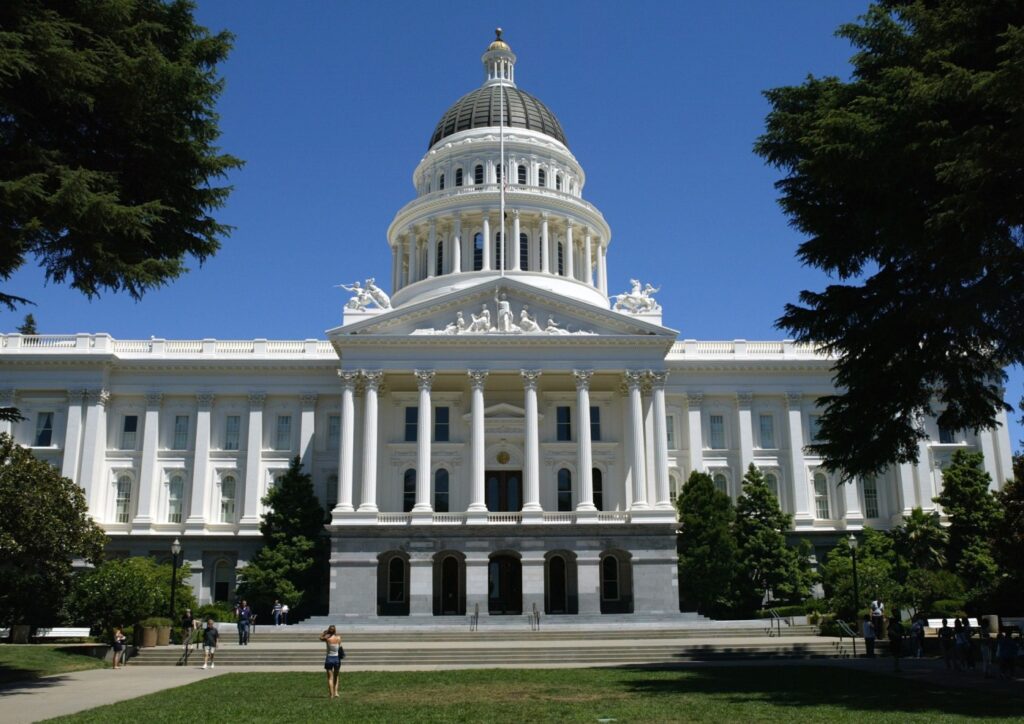
Editor’s note: Sacramento Snapshot is a weekly series during the legislative session detailing what Orange County’s representatives in the Assembly and Senate are working on — from committee work to bill passages and more.
What happens when a college student accrues debt — not through federal or private loans, but instead money owed to the school?
For some, what’s known as “institutional student debt” or “shadow debt” comes in the form of a parking ticket or unreturned library book and when notified, can be easily repaid.
But in other, more detrimental cases, institutional debt can accrue when a student withdraws from a course or school before the end of a term, resulting in the school returning federal student aid, like Pell Grants or loans, and leaving the student owing money directly to the school
Related: Borrowers rally on Capitol Hill before student debt arguments at Supreme Court
Advocates say the issue was particularly exacerbated during the COVID-19 pandemic when students were leaving school due to illness or to take care of family members.
Assemblymember Blanca Pacheco. (Photo courtesy of Blanca Pacheco’s campaign)
An estimated 750,000 students across California owe more than $390 million combined in debt to state institutions, according to a report from the nonprofit Student Borrower Protection Center.
An effort in the California Legislature, spearheaded by Assemblymember Blanca Pacheco, aims to expand protections for students who owe institutional debt. The bill doesn’t eliminate what’s owed, but rather it sets limits on how California’s colleges and universities, both public and private, could attempt to recoup that money.
Specifically, Pacheco’s bill would prohibit colleges from refusing to re-enroll or register a student from courses or withholding a degree only because of outstanding institutional debt.
Related links
4 states that will pay off your student loans for moving there
Biden’s student loan forgiveness plan gives some ‘breathing room’ and others anxiety
OC community colleges now offer free or low cost bus passes for students
Borrowers rally on Capitol Hill before student debt arguments at Supreme Court
It also prohibits schools from using a for-profit third-party debt collection agency as a means to recoup the debt and would prevent public universities from having the California Franchise Tax Board garnish tax refunds to recover the debt.
Pacheco, who introduced the bill last week with a press conference on the Capitol steps, says institutional debt “has posed grave harm to student access, endurance and completion of degree attainment while also wreaking economic havoc on many of the most economically vulnerable students across California.”
When students are awarded federal aid for school, they tend to spend it on things needed right away, like textbooks, bus passes or rent, said Sarah Bouabibsa, a policy and advocacy manager for Young Invincibles, a group focused on young adults’ involvement in political and economic activities.
In some instances, schools may attempt to work with students and offer another source of funding to help cover the debt. But once it’s outsourced to a third party, it’s out of their hands, Bouabibsa said.
“We’re not saying the school can’t collect on this debt. They should just stop the most harmful practices when trying to collect it,” said Bouabibsa.
The bill from Pachecho, whose 64th Assembly district includes La Habra, would also require higher education institutions to report annually information regarding institutional debt owed by its students, an effort to increase transparency, according to a fact sheet about the bill.
AB 1160 has been referred to the Higher Education Committee. It’s supported by multiple nonprofits focused on student debt and other issues as well as the University of California Student Association and the California State Student Association.
In other news
• The Senate Public Safety Committee greenlit legislation allowing domestic violence, stalking and sexual assault victims to access evidence used to document the incident, including 911 recordings, without charging a fee. The bill also extends the time limit for victims to request such documents. Sen. Dave Min, D-Irvine, said his bill will make it “easier to prosecute abusers.”
• Assemblymember Kate Sanchez’s bill meant to reduce the likelihood of lethal allergic reactions on school grounds got a bipartisan and unanimous nod from the Assembly Education Committee last week. The bill from the Republican legislator, whose district includes Orange and Riverside counties, expands who would be able to administer epinephrine auto-injectors, like an EpiPen, and would require the location and use of the medication to be known and accessible to school staff.
• From Assemblymember Cottie Petrie-Norris, D-Irvine, is a bill to ensure medical providers cannot be denied liability insurance coverage simply because they offer abortion services or other gender-affirming care. It cleared the Insurance Committee last week, with no Republican voting in favor of it. Petrie-Norris has said of her bill: “It is unacceptable for malpractice insurers to discriminate against health care providers that provide sexual and reproductive health care.”
• Legislation from Sen. Catherine Blakespear broadening the local agencies that a member of the Coastal Commission can also serve on cleared a Senate Committee with bipartisan support last week. Blakespear, whose district includes southern Orange County, says the bill allows people who are knowledgeable about coastal issues and local planning to serve in various capacities.
Related Articles
Sacramento Snapshot: California could criminalize AI-generated revenge porn
Sacramento Snapshot: Effort to protect workers from harassment advances
Sacramento Snapshot: Bill expanding contraceptive access gets early bipartisan support
Sacramento Snapshot: The effort to extend transitional housing projects’ environmental exemptions
